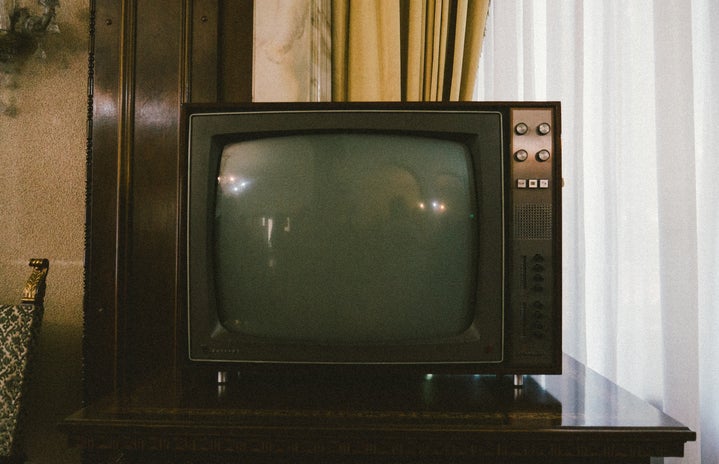TW/CW: This article contains spoilers for Netflix’s “Never Have I Ever” and subjects like Islamophobia, anti-Semitism, ableism and other sensitive topics.
Mindy Kaling’s new teen comedy series, “Never Have I Ever,” has quickly risen to one of Netflix’s top shows. I highly anticipated the show’s release — excited to see a first-generation Indian American, like myself, as the main character in a modern coming-of-age series. However, my initial excitement was short lived.
I was first exposed to elements of Kaling’s problematic writing after watching the Diwali episode in “The Office,” foreshadowing the cringeworthy nature of “Never Have I Ever.” She has let me down with lazy storytelling rooted in diversity, not real equity. Frankly, I’m tired of Kaling exploiting Indian culture to satisfy a predominantly white industry.
The show is partially based on Kaling’s childhood and follows the life of Devi Vishwakumar, played by Maitreyi Ramakrishnan, an Indian American teenager living in California.
Through the season, the audience watches as Devi endures somewhat traditional high school experiences, including adolescent crushes, family arguments and evolving friendships. Not so conventionally, months after her father’s death, Devi is on a mission to lose her virginity to the hottest person in school.
On the surface, the show provides insight into the difficulties many South Asian families face and is a win in terms of Desi representation. In a nation where Apu from the Simpsons was the extent of Indian representation in American media, it’s no surprise Kaling answered the long-standing cry for a South Asian lead. Although she has been at the forefront of cultural representation, her show fails to thoughtfully consider the distraught nature of South Asian American identity and diversity.
Although Kaling attempts to present some relatable Desi experiences, the show effectively relies on South Asian stereotypes to entertain white audiences. At the same time, the series showcases casteism and normalizes Islamophobia, among other problematic themes.
A prime example, in the opening scene of episode one, the audience watches Devi pray to Hindu gods, followed by white narrator and tennis star John McEnroe who explains that until recently, Devi was temporarily paralyzed. She miraculously regains the ability to walk when she sees her crush in public, a scene according to some viewers is a blatant display of ableism.
Kaling also passively jokes about Narendra Modi, Indian Prime Minister and Hindu nationalist. He launched one of the world’s largest genocides Under the Citizenship Amendment Act. Kaling neglects to acknowledge India’s current political climate, which seems neglectful when making a show centered around South Asian representation.
Although the show takes place in California, Modi is primarily supported by upper-caste Indian Americans, like Devi’s family. Ultimately, Kaling wasted an opportunity to address India’s complex socio-political climate, harming those who are negatively impacted by Modi’s authoritarian regime.
In an instance of Islamophobia during the Ganesh Puja episode, the audience watches Devi’s cousin, Kamala, talk to a woman who’s outcasted by the Hindu community for marrying a Muslim man. This is an opportunity for Kaling to challenge anti Muslim discourse — instead, the woman merely suggests that Kamala marry the man her parents arrange for her. In this scene, Kaling disregards a whole cultural identity, all the while Muslims in India are facing discrimination.
Subsequently, Kamala breaks up with her current boyfriend in order to pursue an engagement with the Indian man her family chose, a glorifying example of caste endogamy. On the one hand, it’s refreshing to see how cultural traditions can be integral to identity. But, not so progressively, the writers perpetuate Islamophobic rhetoric by making a joke out of Muslims.
“Never Have I Ever” also prides itself on having a diverse cast but, surface level representation doesn’t necessarily equate with authentic storytelling. For instance, there are consistent anti-Semitic jokes concerning Devi’s Jewish friend Ben, that serves as a reminder that he is in fact Jewish. Particularly, in one episode, Devi has a bad day and a during history class conversation about the holocaust, Devi tells Ben she wishes Nazi’s would kill him. The show regularly flaunts different character backgrounds in stereotypical and offensive ways.
Some viewers argue that Devi’s Indian identity is purely incidental; however, the show takes advantage of every opportunity to point out just how Indian she is. Primarily, it capitalizes on using stereotypical accents with Devi’s mom and cousin, two of the main characters. Similarly, during the Ganesh Puja episode, a college advisor tells Devi that she’s too Indian to get into her dream school.
In the same episode, the audience watches as Devi is openly embarrassed about being Indian amid the cultural celebrations. This is not an unrelatable experience, and around Devi’s age I definitely felt similar feelings. The climax of the episode reaffirms her negative feelings associated with Indian culture, and while relatable, she doesn’t learn to embrace and be proud of her background.
Lazy cultural representation can reafirm stereotypes and misconceptions about a cultural group, shaping the way others perceive and treat them. Therefore, it’s imperative that writers like Kaling thoughtfully approach representing facets of the South Asian diaspora. “Never Have I Ever” perpetuates misconceptions such as migrant stereotypes, casteism, misogyny and Islamophobia.
Although there is a need for greater South Asian representation in mainstream media, it needs to be done thoughtfully. Kaling and writers alike should be more conscious of their positionality and hold themselves accountable to the communities they represent. Indian Americans and first-generation migrants deserve culturally cognizant representation in mainstream media.
Many members of the South Asian diaspora, like myself, aren’t desperate for problematic cultural representation. While Kaling admits that she only writes about what she knows from personal experience, she fails to challenge longstanding tropes. Instead, she attempts to pass off offensive cultural references as acceptable.
It is especially pertinent in the current polarizing political climate to represent culture in a thoughtful manner. Cultural representation can help unite individuals and positively affect the way outsiders come to know a cultural group. Otherwise, they can perpetuate widely held misconceptions and foster negative sentiment.
“Never Have I Ever” has its moments, and at times I thoroughly enjoyed aspects of the show. However, it highlights a need for more attentive South Asian representation in the mainstream media. Diversity hires, like Kaling, should use their positions of power to represent culture thoughtfully instead of producing inconsiderate storytelling which furthers cultural misunderstandings.


